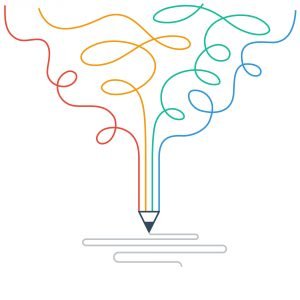Reach for the Stars: 7 Timely Tips on Polishing Your Academic Writing Skills

Academic writing is an everyday activity for every college and university student. They have to know how to write their original research papers, essays, term papers and dissertations if they want to gain MA and Ph.D. degrees and build their academic career effectively. Despite the fact that academic writing is so common it still stays exceptionally challenging even for the most accomplished students. Get to know how to polish academic writing skills and increase both your grades and confidence.
Make a list of basic academic traps
There are lots of grammar traps in the English language, but you shouldn’t get desperate, as basically we get into the limited amount of them. Make a list of the most common pitfalls and write a short rule next to each. Every time you stumble upon a grammar twist, you will have a handy helper. Pay extra attention to the following tricks:
- Make vs. Do. Remember that DO mostly describes work and anything related to it.
- Infinitive vs. Gerund. Print a lists of verbs which are used only with infinitive, or gerund, or with both. It will help to cut on mistakes greatly.
- Compounds. Gather and print the list of words written with “-”, separate or together. After you address this list for several times, you will get the principle.
- Numbers. In academic writing numbers are not used the way they might be used in blogs or magazines. For example, you should always write any number under 10 with words, not with digits.
Of course, there are much more tricky rules, but even if you come up with 7-10, it will be enough to decrease mistakes in your papers significantly.
Use a “little black notebook”
This tradition, or better say practical exercise, came from Hollywood film directors and script writers. They note everything noteworthy into small black notepads and use it in the proper time. Write down all interesting words and expressions, ideas for compare and contrast essays, internet resources, etc.
Learn from mistakes
It might sound rather mediocre, but you will benefit greatly from this advice if you dare to follow it. Gather 3-4 checked papers and look through mistakes and omissions underlined by your professor. Write down the most common ones and add short tips on avoiding them into the list we described above. Returning to your mistakes, omissions and failed papers might be rather irritating, but it is truly worth it.
Start blogging
Academic writing differs greatly from any other type of composition, but still, they have a common ground. To make your college or university papers better start writing more in general. The best way is to start blogging, covering topics which are the most interesting for you. It will help you form your original style, train the ability to find necessary words and make your more confident in writing in general. Who knows, maybe it will even bring you some money.
Add UrbanDictionary to bookmarks
Urban Dictionary explains almost every word you can stumble upon in your everyday life. While Merriam Webster is more academic, Urban Dictionary is very practical. You should use it to find fresh ideas and words to express yourself. Modern academic writing gets away from Plato and Socrates and approaches non-fiction literature style. It means writing “dry” is no longer appreciated.
Become a Part of Corpus of Contemporary American English
If you want your professors to take you seriously, you have to use this source intensely. It has both American and UK English versions and allows you to check any word and expression regarding their practical usability. You can look for terms and the way they are used in sentences, with which prepositions, followed by which tense or grammar structure, etc. Make it a habit to check anything in question with this service, as it is free and efficient.
Read with a pencil in your hand
You’ve probably heard this advice for dozens of times, but it is still up-to-date and efficient. If you read electronic books, use Highlight-Copy-Paste sequence to save the most valuable information. As in the case of a small black notepad, save everything you find perspective and interesting. It might be a link, a word, an expression, a fact, a reference, a name — anything which will make your future academic papers deeper and more well-thought-out.
Make a use of these tips and you will increase your academic writing abilities in no time. Good luck!
